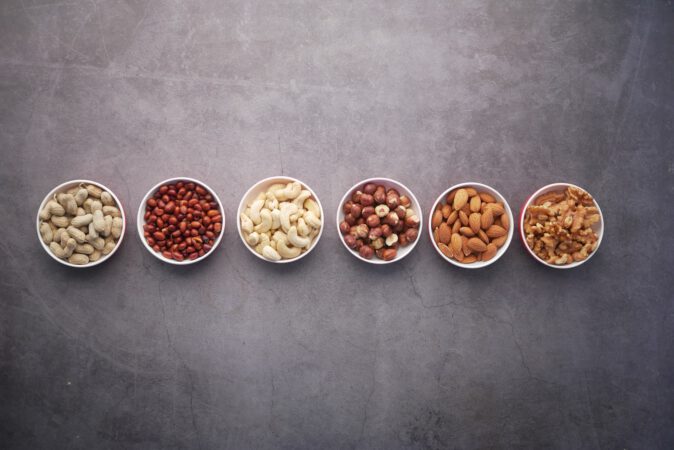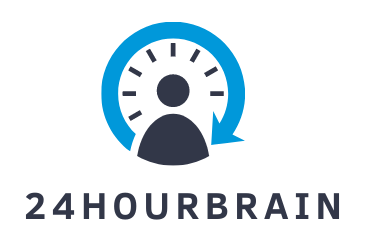Does “Eat Smart!” actually work? A healthy diet is necessary for both your body and mind. You can keep your brain fit and healthy by eating these ten foods.
The brain consumes 20 to 25% of the energy required by the body on a daily basis. It’s no surprise, given how hard this high-performance computer works. The brain needs to be supplied with oxygen and energy to avoid running out of air.
When blood glucose levels are stable, this oxygen and energy supply is particularly good. Then, our blood has enough glucose to give each brain cell what it needs while also making sure that enough oxygen gets to it.
The brain is incapable of storing energy. The gray cells starve when people lose their energy reserves due to a lot of stress or skip meals frequently. As a result, the head is less efficient. However, eating the wrong foods can cause a loss of concentration and performance.
These Ten Foods are Good for Your Brain
A healthy, well-functioning brain requires a sufficient supply of nutrients. To ensure healthy functioning, the brain should always be supplied with enough carbohydrates, proteins, fats, vitamins A, B1, B6, B12, C, E, and minerals such as calcium, magnesium, and iron. We’ve put together a list of foods that will help you meet your brain’s nutritional requirements.
1. Water
Although it should go without saying, water must come in first on this list. Water, while not exactly brain food, is necessary for a healthy and functioning brain. If you’re dehydrated, you’ll notice it right away, such as difficulty concentrating or headaches.
To aid the brain’s function, drink plenty of water – between two and three liters per day.

2. Whole Grains
Aside from water, our brain requires another essential nutrient: energy. Every day, the brain requires 120 grams of glucose. Carbohydrates provide this to our bodies. Long-chain and complex carbohydrates, such as whole grain products, are preferred. Unlike the glucose in sweets, these give you energy that stays with you for a long time.
Because our bodies can’t break down the long-chain carbohydrates in whole-grain bread as quickly as they can in white bread, their energy is released gradually. This maintains a constant sugar level by keeping the sugar level low.
3. Nuts
Among the brain foods, nuts are the superfood. Peanuts, hazelnuts, and walnuts, in particular, are high in protein, which is necessary for a healthy brain. They also contain a high amount of unsaturated fatty acids. These “good fats,” also known as essential fatty acids, are primarily found in walnuts, almonds, and Brazil nuts. Walnuts are also high in B, E, and iron.
Calcium is abundant in hazelnuts and Brazil nuts, which is beneficial to the brain.
Almonds and walnuts are the best sources of magnesium.
Almonds and hazelnuts, for example, are good sources of iron.
When it comes to health-promoting ingredients, nuts are hard to beat.
Another benefit of nuts is that they can be taken anywhere, are not temperature sensitive, and are simple to store. You can take a short break from thinking and eat the individual portions more mindfully if you crack them yourself.
Because nuts contain a lot of calories. Nonetheless, they are nutritious snacks. They are far healthier than greasy potato chips as a snack.

4. Green Tea
Green tea is almost always included in any list of healthy foods. It is, of course, also represented here. Because green tea is a true blessing for our brain, specifically its performance. It can have a calming and stress-relieving effect on the one hand, but it can also be stimulating on the other.
It all depends on how well you prepare. Green tea can thus be exactly what our brain requires at any given time, whether for relaxation or doping. Green tea’s memory-improving effect, according to researchers at the University of Basel, could help in the treatment of dementia.
5. Lentils, Beans, Peas
Protein is abundant in legumes such as lentils, beans, and peas, which is critical for brain function. Lentils, beans, and other legumes contain important micronutrients such as vitamins B1, B6, and folic acid, in addition to proteins. You can learn why vitamin B can help with depression in this article.
Legumes, by the way, contain a lot of antioxidants, iron, and other nutrients. They keep the brain healthy and fit on the one hand, but they also keep blood sugar levels low on the other. As a result, people with diabetes or high blood pressure may find legumes appealing.
6. Fruits
Almost all fruits are beneficial to our mental health. Some fruits can assist us in improving our memory. Apples, kiwis, peaches, watermelons, and sugar melons, as well as plums, pineapples, oranges, cherries, and grapes, can assist us in recalling information more quickly.
Dried fruit* is also a delicious and healthy substitute for chocolate, cookies, and other sweets. Avocados are also beneficial to the brain because of the many unsaturated fatty acids they contain. Avocados, on the other hand, should be the exception on your plate due to their ecological balance.
7. Mushrooms
Mushrooms are true miracles for the brain. They are high in magnesium, calcium, and trace elements like selenium and zinc, as well as being delicious and complementing many dishes. Vitamin C and D are also found in some mushrooms, such as button mushrooms.
In another study, researchers from the National University of Singapore discovered that eating mushrooms can help prevent the early stages of dementia. About 300 grams of mushrooms should be consumed per week.

8. Essential Oils
Certain oils have been shown to improve brain health. Oils high in polyunsaturated fatty acids like omega-3 and omega-6 are particularly beneficial to the brain. Many omega-3 fatty acids can be found in oils from nuts, such as peanut or walnut oil, as well as linseed or safflower oil. Sunflower seed oil and olive oil are rich in omega-6 fatty acids.
9. Chia Seeds
Among the brainfoods, chia seeds, as well as nuts, are superfoods. Chia seeds, like some oils, are high in omega-3 fatty acids, which protect the brain. They also contain a lot of antioxidants, which can help prevent diseases like dementia and memory loss.
10. Green Leafy Vegetables
Parents were correct when they “forced” us to eat our vegetables or spinach back in the day. Green leafy vegetables have a positive effect on our brain health in addition to their general health benefits. Broccoli, spinach, Brussels sprouts, chard, purslane, pak choi, arugula, lamb’s lettuce or lettuce, nettle, and dandelion are just a few examples.
Leafy vegetables, for example, help the brain work by lowering cholesterol and blood pressure thanks to their diverse ingredients. Every day, green leafy vegetables should be on the menu.


